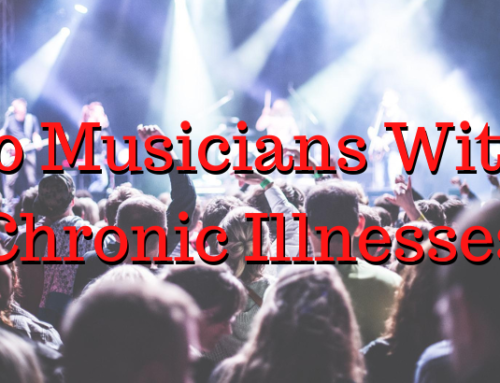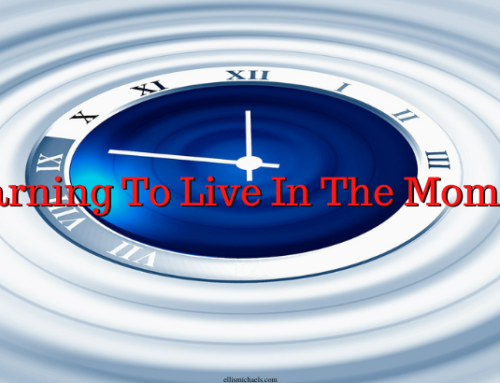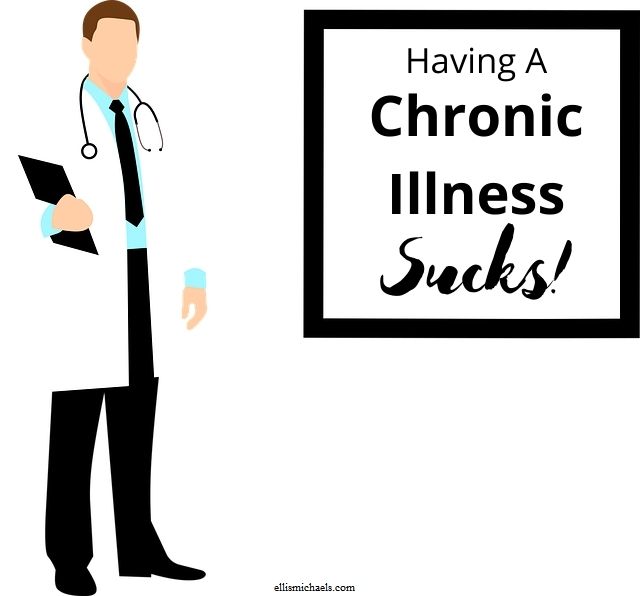Have you ever had one of those nights when you just can’t seem to fall asleep? How about one of those nights when you fall asleep just fine, only to wake up a couple hours later unable to doze back off?
If you answered yes to at least one of these questions, you’re in good company. Most people experience trouble sleeping from time to time. And an occasional rough night won’t have any long-term effects on your health.
But when you have trouble sleeping night after night, things start to get a little more serious. Chronic insomnia can affect your mood, ability to focus, productivity, weight, and many other aspects of your health. And if you’re living with a chronic illness, untreated insomnia can cause your symptoms to worsen.
Beating Insomnia Without Prescription Drugs
Table of Contents
Sleep disorders are incredibly common in today’s fast-paced world. As many as 70-million Americans suffer from insomnia. It’s estimated that this results in about $18 billion in lost productivity every year.1
Insomnia is something I’ve been dealing with for as long as I can remember. Even as a child, I remember staring up at the ceiling, night after night, begging the universe to let me fall asleep.
By my late teens, I realized the universe wasn’t listening and that if I wanted to get relief from my insomnia, I’d have to do more than just try to wish it away. So I talked to my doctor and got prescribed a sleeping pill. When that one didn’t work, he prescribed me another one. Then another one.
I’ve been on just about every prescription sleep medication that’s out there. Some of them work fantastically, others not at all. I’ve also tried every natural, herbal, and over-the-counter (OTC) remedy that’s out there. Some of them work great while others have a paradoxical effect (they cause insomnia instead of treat it).
 Long story short, I’ve tried it all and now I’m gonna share with you everything that’s worked for me. The only thing I’m not gonna talk about here is prescription sleep aides, though I may talk about them at a later time.
Long story short, I’ve tried it all and now I’m gonna share with you everything that’s worked for me. The only thing I’m not gonna talk about here is prescription sleep aides, though I may talk about them at a later time.
First, let’s look at what exactly insomnia is: its definition, what causes it, and what effects it can have on your life. Then we’ll explore all the behavioral things we can do to prevent insomnia. Lastly, we’ll look at the few over-the-counter (OTC) medications that actually work.
What Is Insomnia?
The word insomnia simply means difficulty falling and/or staying asleep. It’s a common word in the English language and this is the definition people usually mean when they use it. It comes from the Latin word, insomnis, meaning sleepless.
However, insomnia is also the name of a specific sleep disorder. Insomnia disorder, formerly known as primary insomnia, is the name doctors give to clinical insomnia. To be diagnosed with insomnia disorder, you have to experience sleeplessness at least 3 times a week, for 3 months or longer.2
 A diagnosis of insomnia also means your sleeplessness is not being caused by any kind of drug or supplement, is not being caused by some other sleep disorder, and is continuing in spite of having plenty of time to try to sleep.
A diagnosis of insomnia also means your sleeplessness is not being caused by any kind of drug or supplement, is not being caused by some other sleep disorder, and is continuing in spite of having plenty of time to try to sleep.
This criteria is from the DSM-5 (Diagnostic and Statistical Manual of Mental Disorders, 5th Edition), which is basically the bible of psychiatry and clinical psychology. It lists all the disorders, how to diagnose them, and is packed with all kinds of statistics.
And some of the stats about insomnia are pretty scary. For example, the DSM-5 says that insomniacs have a higher rate of suicide than the general population. It also says that anywhere from 45-75% cases of insomnia are chronic. Lastly, the DSM-5 states that insomnia is a risk factor for several other disorders, including anxiety and depression.3
As you can see, long-term insomnia is not a good thing. It puts you in a higher risk category for all kinds of disorders. But the negative effects of insomnia aren’t limited to the psychological.
Insomnia can have all kinds of physical consequences, too. One of the most troubling of these is obesity. Studies have shown that there is a very strong link between insomnia and obesity. Other physical consequences of not getting enough sleep can include your skin aging faster than usual, increased risk for heart disease, high blood pressure, reduced libido and other sexual problems, and increased risk for diabetes.4
I think you get the point. Chronic insomnia can wreak havoc on your entire body, and can lead to a number of psychological problems. And if you’re living with a chronic illness, the effects on insomnia can be even more devastating.
Insomnia, Chronic Illness, and Me
When I got diagnosed with Behcet’s disease at the age of 16, insomnia was something I’d already become quite familiar with. Countless nights I’d lay in bed as a child begging my brain to shut off. When my brain wouldn’t listen, I’d ask to the universe to help. When the universe wouldn’t listen, I begged god – any and all of them – to help me fall asleep. When even the gods wouldn’t listen, I knew I’d be in for a long night.
 Eventually when I became an adult, I gave up on curing my insomnia through supernatural means and began researching more natural solutions. This was the late nineties, so I couldn’t just Google “what the f*#k can I take to fall asleep.” Fortunately, both of my parents were nurses and had a bookshelf of medical texts. One of them was a small paperback book about alternative medicine.
Eventually when I became an adult, I gave up on curing my insomnia through supernatural means and began researching more natural solutions. This was the late nineties, so I couldn’t just Google “what the f*#k can I take to fall asleep.” Fortunately, both of my parents were nurses and had a bookshelf of medical texts. One of them was a small paperback book about alternative medicine.
Though I don’t remember the name of the book, I do remember spending a lot of time reading through it. The book listed natural treatments for everything from depression to diabetes, influenza to insomnia. I couldn’t wait to try all the different things that might finally put an end to my occasional bouts of insomnia. Unfortunately, most of the substances mentioned in the book were nearly impossible to find.
So I turned to my doctors for help. After years of strange symptoms and finally being diagnosed with Behcet’s disease, I regularly had to see several specialists. I told them about my sleep problems and they were happy to help – by prescribing one dangerous, addictive pharmaceutical after the next.
Some of the drugs they prescribed worked great – at first. Things like Klonopin (clonazepam) and Ambien (zolpidem) helped me fall asleep, stay asleep, and wake up feeling rested. But those positive effects were short lived. After just a few days, their effects got weaker and weaker. And then when I stopped taking them, my insomnia came back with a vengeance.
This is called rebound insomnia and is a big problem with most prescription sleep aids. They work great at first but, once you stop taking them, your insomnia comes back worse than ever. With every new pharmaceutical I tried, it became more and more obvious they weren’t the answer.
In the early 2000s, I enrolled in college, double-majoring in psychology and philosophy. My undergraduate concentration was in medical psychology, then clinical psych for grad school. During my time at the university, I learned about lots of behavioral techniques to improve sleep quality. Though I didn’t have high hopes initially, I became pleasantly surprised when some of these techniques actually helped.
But as much as some of these things helped, they weren’t a cure-all. I’d still get occasional bouts of insomnia from time to time. And it made me feel awful. When I haven’t been sleeping well, I get intense hot and cold flashes that are really uncomfortable. Only recently have I learned that this is common for people with Behcet’s disease. Lack of sleep also puts me in a bad mood, sends my anxiety through the roof, makes focusing on anything for more than a few minutes nearly impossible, and more.
 By the time I finished college, internet access had become commonplace. Websites like Amazon, eBay, and other marketplaces were thriving. It occurred to me that I could finally get my hands on all the non-prescription sleep aids I’d read about years earlier. And over the course of the next decade or so, I tried just about all of them.
By the time I finished college, internet access had become commonplace. Websites like Amazon, eBay, and other marketplaces were thriving. It occurred to me that I could finally get my hands on all the non-prescription sleep aids I’d read about years earlier. And over the course of the next decade or so, I tried just about all of them.
I figured out what worked and what didn’t through years of experimentation, amassing not only a vast collection of OTC sleep aids, but also a vast knowledge on the subject. And now I’m going to share much of that knowledge with you. But if you want to hear my whole story – the good, the bad, and the downright embarrassing – you can check out my memoir about living with Behcet’s disease.
I recommend trying at least some of the behavioral methods for improving sleep before jumping to OTC sleep aids. Some people are able to put their insomnia to rest once and for all with a few behavioral changes. But for many of us, it’s not enough. For me, I’ve found a combination of both to work better than either or. However, everyone’s bodies and brains are different. Only you can figure out what works for you.
Behavioral Ways To Improve Sleep
There are a number of ways to improve sleep without taking drugs. Many of these are common sense, but some of them are less obvious.
1. Go to bed around the same time every night
Creating a consistent sleep schedule is one of the simplest ways to improve your sleep. What this does is condition your body to want to fall asleep at the same time every night.
 We’re all creatures of habit. Our bodies generally like to do the same things at the same times everyday. When you’re always going to bed at different times, your brain struggles to make heads or tails of what it should be doing.
We’re all creatures of habit. Our bodies generally like to do the same things at the same times everyday. When you’re always going to bed at different times, your brain struggles to make heads or tails of what it should be doing.
For years, I worked overnights – 4 nights a week. On my 3 days off, I’d sleep at night. But on the nights I had to work, I’d sleep during the day. It didn’t go so well. Rarely was I able to get more than a few hours of sleep.
But when I quit the overnight job and went back to sleeping at night every night, my sleep quality improved dramatically. Consistency is important when it comes to sleep. Try to go to bed around the same time every night.
2. Avoid caffeine
 It’s no secret that caffeine is a stimulant. That’s why we all love it so much. But drinking caffeinated beverages too late in the day can cause you to have trouble falling asleep. Even long after the stimulating effects of caffeine wear off, it can still prevent you from falling asleep.
It’s no secret that caffeine is a stimulant. That’s why we all love it so much. But drinking caffeinated beverages too late in the day can cause you to have trouble falling asleep. Even long after the stimulating effects of caffeine wear off, it can still prevent you from falling asleep.
Some people are more sensitive to caffeine than others. I’ve known people who can chug a 20 oz. coffee and fall asleep 30 minutes later. I’ve also known people who can’t fall asleep at 10PM if they drank a cup of tea after noon.
As Socrates once said, “Know thyself.” Know how caffeine affects you and avoid it late in the day if you are sensitive to it. Personally, caffeine doesn’t seem to have much impact on my sleep quality. Still, I usually limit my consumption in the second half of the day.
3. Keep your bedroom cool
Your body likes it to be cool when you sleep. In fact, your body temperature drops when you are sleeping.
I know, for me, I have trouble falling asleep if it’s too hot. I turn the heat down in the winter and crank up the air conditioner in the summer before I go to bed – and it makes a huge difference.
Try turning the heat down by 5-10 degrees before going to bed. You should find it easier to fall asleep and you’ll save money on your heating bill.
4. Don’t watch/read/do anything too stimulating before bed
This one is super important, but is often overlooked. We are constantly plugged in. Laptops, iPhones, Androids, tablets, PlayStations, Xboxes – the list goes on and on. And these things are all awesome – but they can also make it hard to fall asleep.
Try putting down the electronics 30-60 minutes before going to bed. It’ll give your brain a little time to relax before falling asleep.
5. White noise
Partly due to inflammation in my ears from Behcet’s disease and partly due to listening to loud music turned up to 11 for the past thirty years, I often experience tinnitus (ringing in the ears). Because of this, it’s nearly impossible for me to fall asleep without some sort of background noise.
Even if you don’t suffer from tinnitus, you may still find it hard to fall asleep in total silence. If so, adding some white noise to your bedroom could make a big difference. White noise is another name for constant sounds in the background and can include things like falling rain, waves crashing, or an air conditioner.
My two go-to white noise sources are my AC and a fan. Both are loud enough to drown out the ringing in my ears. I find them soothing and they definitely help me to fall and stay asleep.
6. Create a sleep ritual
This one ties the first 5 suggestions together. Create a sleep ritual that works and stick to it.
 Doing the same things before going to bed every night trains your brain to prepare for sleep. If every night you have a small snack, brush your teeth, then watch a rerun of one of your favorite shows as you fall asleep, your brain gets used to this routine. As soon as you start eating that small snack, your brain knows that it’ll be bedtime soon.
Doing the same things before going to bed every night trains your brain to prepare for sleep. If every night you have a small snack, brush your teeth, then watch a rerun of one of your favorite shows as you fall asleep, your brain gets used to this routine. As soon as you start eating that small snack, your brain knows that it’ll be bedtime soon.
That’s actually a sleep ritual I used for years. I’d have a small snack, brush my teeth, use the bathroom, then throw on an old X-Files episode or something and drift off to sleep. The secret was to watch something I’d seen before. That way I already knew what was going to happen and wouldn’t get sucked into the story.
My current sleep ritual is a little different, but not by much. It still starts with a snack. If I don’t eat something before bed, I wake up hungry after a few hours and can’t get back to sleep. Then I brush, use the bathroom, and get comfy in bed. But instead of putting on a TV show, lately I’ve been listening to podcasts or other audio.
I’m not saying this routine would work for everyone. But it works for me. Figure out your optimal sleep ritual and stick to it. Again, this trains your brain to know when it’s bedtime.
Over-The-Counter (OTC) Sleep Aides
There are a number of drugs and supplements that are sold over-the-counter to treat insomnia. Again, I would suggest trying all the behavioral techniques listed above before trying any of these.
But if you still can’t get a good night’s sleep, there are plenty of things you can take to help you fall asleep. Here are some of the things that have helped me the most. All but one of them are readily available at Amazon.
1. Diphenhydramine (Benadryl)
This is probably the most common OTC sleep aide. And there’s a good reason: for most people, it works.
 Diphenhydramine is in a class of drugs called antihistamines. These drugs are known to cause drowsiness.
Diphenhydramine is in a class of drugs called antihistamines. These drugs are known to cause drowsiness.
The good news is that diphenhydramine has been around for a long time and is generally very safe to use. The bad news is that, for some people, it can cause morning grogginess.
In the U.S., it is recommended that you take between 25-50 milligrams (mg) before sleep. However, in many other countries, dosages of 100 mg and beyond are recommended.
I personally don’t get drowsy after taking 50 mg of diphenhydramine. However, 75-100mg usually works great. I take it ½ hour before I plan to go to sleep and it often helps.
2. Melatonin
This is another common OTC sleep remedy. Melatonin is a hormone that is naturally produced in your body. Levels of this interesting hormone are highest during night time hours.
 Supplementing with melatonin can help improve the quality of your sleep. It is particularly helpful for people who have to sleep during daylight hours. When I used to work overnights, melatonin helped me to sleep during the day.
Supplementing with melatonin can help improve the quality of your sleep. It is particularly helpful for people who have to sleep during daylight hours. When I used to work overnights, melatonin helped me to sleep during the day.
For me, melatonin doesn’t seem to help me fall asleep. But it definitely helps me to stay asleep. It’s interesting to note that it has the exact opposite effect for my younger brother. It helps him fall asleep, but then he finds himself waking up a few hours later.
The jury is still out on what the best melatonin dosage is. For me, 5 mg taken one hour before bed seems to be optimal. I’ve experimented with dosages as low as 0.3 mg (300 micrograms) and as high as 10 mg.
With something like melatonin, I encourage people to experiment on themselves to see what works best. It has an excellent safety profile and is well-tolerated in dosages up to 50 mg a day (although I wouldn’t recommend going anywhere near this high).
As with any supplement, you want to use the lowest effective dose. I would recommend starting at 0.3 mg and work your way up if that doesn’t work.
3. 5-HTP (5-Hydroxytryptophan)
This is an interesting supplement that is sold OTC in the United States. 5-HTP is a naturally occurring amino acid and a precursor to serotonin, an important neurotransmitter in the brain. And serotonin is a precursor to melatonin.
 To put it simply, your body uses 5-HTP to make serotonin and melatonin, which are two naturally occurring chemicals in your brain known to play a role in sleep. Supplementing with 5-HTP can help boost levels of these chemicals causing relaxation and sedation.
To put it simply, your body uses 5-HTP to make serotonin and melatonin, which are two naturally occurring chemicals in your brain known to play a role in sleep. Supplementing with 5-HTP can help boost levels of these chemicals causing relaxation and sedation.
Some people report that 5-HTP helps them fall asleep. I personally haven’t noticed this effect. I occasionally use 5-HTP to improve my mood, but it doesn’t help me sleep.
If you are taking an antidepressant, you probably shouldn’t take 5-HTP as it could theoretically lead to too much serotonin in your brain (known as serotonin syndrome or serotonin storm). Otherwise, it’s generally well-tolerated.
When I take 5-HTP, I usually take 100-200 mg before bed. I also take it with something called a decarboxylase inhibitor, which helps it work better for reasons I won’t go into here. If you want to try it for sleep, I’d recommend trying 50 mg ½ hour before bed. If that doesn’t work, I’d suggest increasing the dose to no higher than 200 mg. If it isn’t helping you fall asleep at this dose, then it’s probably not the best OTC sleep aide for you.
4. Valerian
Valerian root is a plant that can cause relaxation and sedation. It has been called nature’s Valium and God’s Valium.
 Several studies have shown that valerian is effective at reducing anxiety and may be effective at improving sleep. It stands to reason that valerian would be most helpful at helping people fall asleep if their insomnia is due to anxiety.
Several studies have shown that valerian is effective at reducing anxiety and may be effective at improving sleep. It stands to reason that valerian would be most helpful at helping people fall asleep if their insomnia is due to anxiety.
I’ve had mixed results with valerian. Sometimes it seems to help me fall asleep, other times it doesn’t. It always help me relax, though.
It’s hard to say what an effective dose of valerian is, as the potency is not consistent from product to product. I’ve generally had good results when taking around 900 mg.
Valerian has been shown to be pretty safe in clinical studies. Like most things, you may have to experiment with different doses to see what works best.
5. Cannabis
This one is controversial, I know. And it’s not yet legal everywhere. But it’s been a game changer for me.
Cannabis, believe it or not, is what finally allowed me to get off prescription sleep medications. I had been taking the prescription drug Seroquel (quetiapine) for years, unable to sleep without it. Then I started using just a little cannabis before bed and was finally able to sleep without prescription sleep meds.
 My mind is always going 500 mph. This is great during the day, as it allows me to get a lot done and analyze even the most trivial aspects of life. But it’s terrible for falling asleep. Cannabis helps slow my mind down to a point where I can eventually drift off.
My mind is always going 500 mph. This is great during the day, as it allows me to get a lot done and analyze even the most trivial aspects of life. But it’s terrible for falling asleep. Cannabis helps slow my mind down to a point where I can eventually drift off.
For me, a little bit goes a long way. I often use a vaporizer, so I don’t have to deal with all the dangers of smoking. A few puffs and my mind slows down just enough to fall asleep. I wake up feeling rested, and my mind is clear.
Because of the bullshit War on Drugs, there’s been tons of misinformation about cannabis and other drugs over the past 50 years or so. But now society is starting to understand that cannabis (and several other illegal drugs) is very safe and has enormous medical value.
I don’t advocate doing anything illegal. But if cannabis is legal in your state (if you’re in the U.S.), think about giving it a try for your insomnia. It just may work better than anything else you’ve tried, as it did for me.
But cannabis hasn’t just been great for insomnia. I’ve used it to help a variety of symptoms caused by Behcet’s disease itself or the prescription medications I take for it. It helps with chronic pain, appetite, mood, anxiety, and so much more. If you want to learn more, I wrote an article about cannabis and Behcet’s disease.
Conclusion
Insomnia sucks. And it’s especially bad for those of us with chronic medical conditions. Fortunately, there are tons of things you can do to beat it.
These are some of the most effective non-prescription things I’ve tried – and I’ve tried everything. I always encourage people to try different things to see what works best for them.
I should say that it’s a good idea to check with a licensed physician before starting or stopping any new drugs, supplements, lifestyle changes, or anything at all. Although, most physicians will just tell you that none of these things work, throw a prescription for trazodone, Seroquel, or Ambien at you and send you on your way. You don’t necessarily have to listen to your doctor. But it’s always a good idea to talk to one, especially if you’re currently taking any prescription meds.
And that’s how I learned to beat insomnia without prescription drugs. Have you tried any of these things? Did they work for you? If not, what has worked? Please leave your answers in the comments section at the bottom. And if you haven’t already, you can sign up for the EM newsletter below.
Join the Ellis Michaels mailing list to stay up to date with the latest news about chronic illnesses, recent articles and other publications, and more.
References
1Nikolovska, H. (2020, May 11). 27 surprising insomnia statistics you should know. Retrieved September 7, 2020 from https://disturbmenot.co/insomnia-statistics/
2Buysse, D. (2008). Chronic insomnia. American Journal of Psychiatry, 165(6):678-86.
3American Psychiatric Association. (2013). Diagnostic and statistical manual of mental disorders (5th ed.). Washington, DC: Author.
4Cronlein, T. (2016). Insomnia and obesity. Current Opinions in Psychiatry, 29(6):409-12.







Leave a Reply